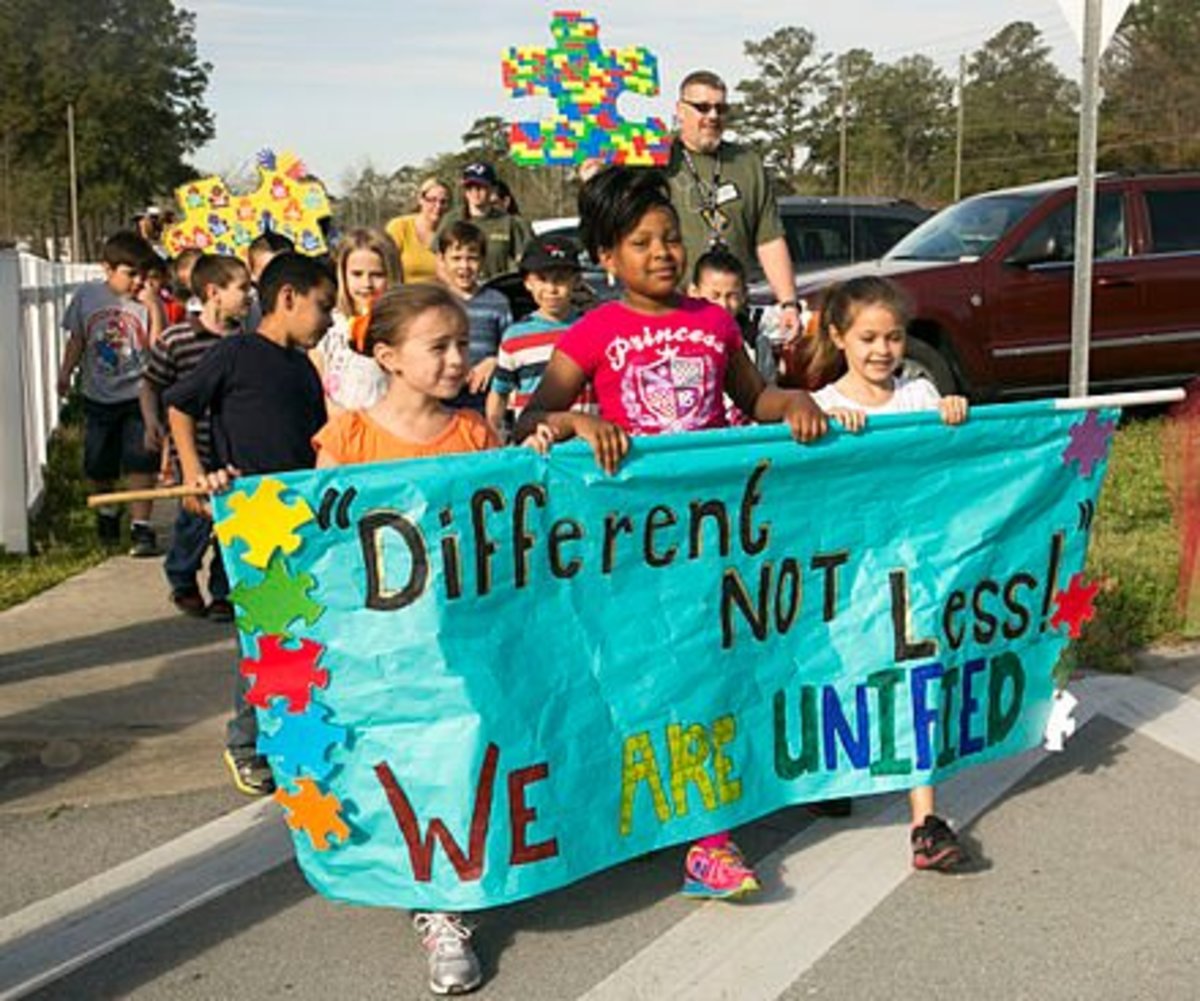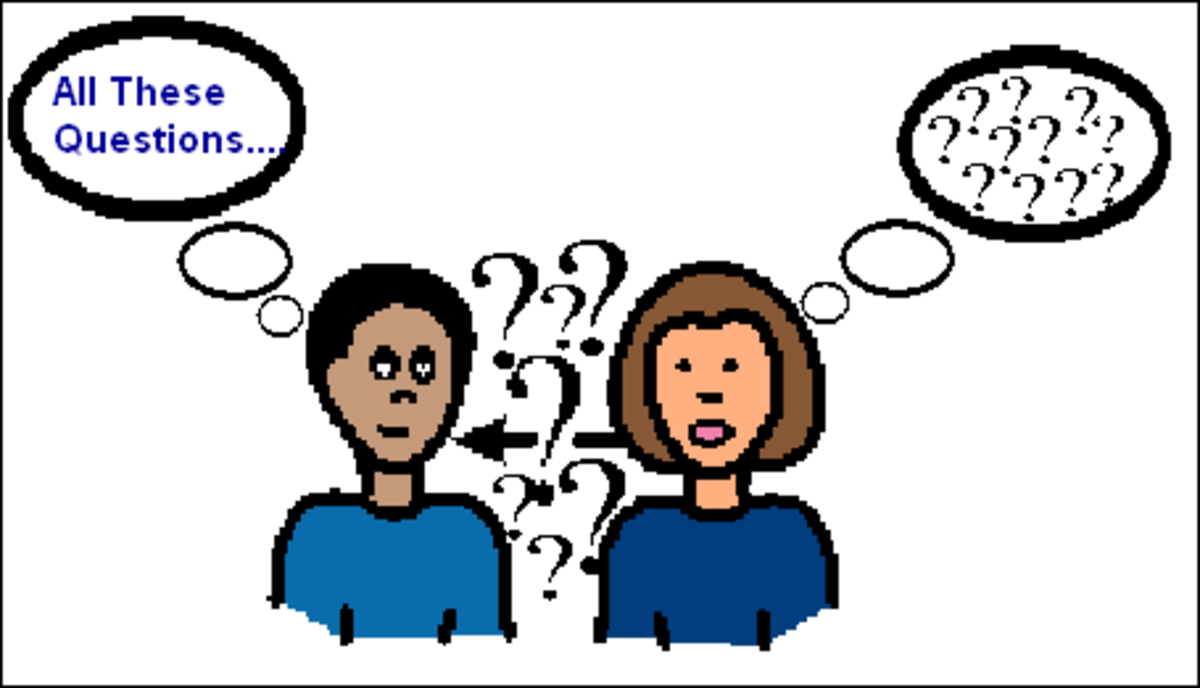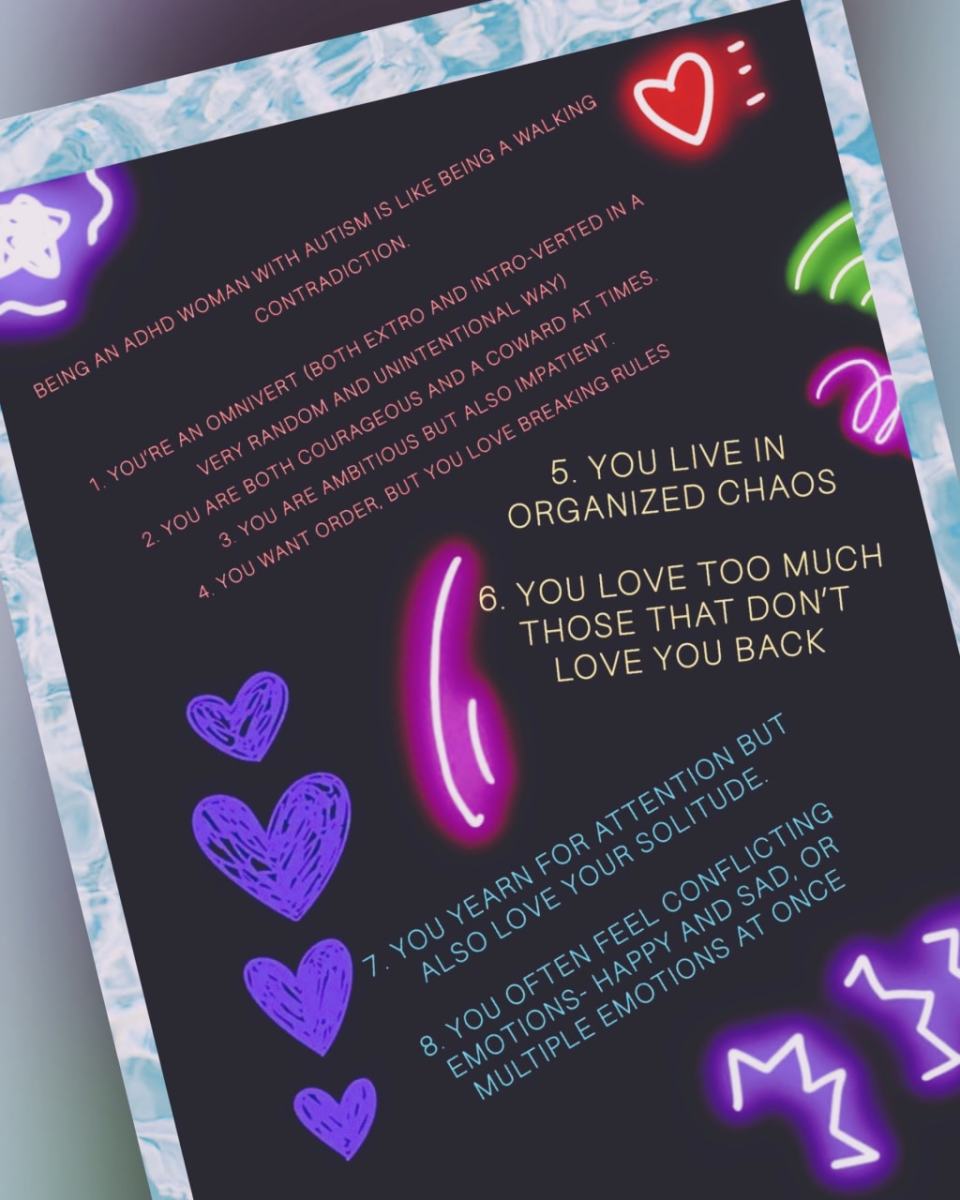Asperger's Syndrome, nonconformity, and special interests
As I noted in a previous hub, I have Asperger’s syndrome, and one of the symptoms of that ‘disorder’ is to have obsessive interests that appear abnormal due to the degree of obsession. Aspies ( a shorthand term for people with Asperger’s), can bore other people without realizing it by incessant chatting about their interest. And if popular books about Asperger’s syndrome like ones by Tony Atwood are to be believed, Aspie interests are typically very unconventional and may be viewed as bizarre by so-called “normal” people. For example, some Aspies, I’ve read, are interested in collecting bottle caps or certain kinds of flags, and other off-the wall things. On the less bizarre side, many have an interest in science and obsessively collect books on the subject. Whatever one may feel about these interests, they are not popular. Aspies, it could be argued then, are practically immune to peer pressure and may be the ultimate nonconformists, not knowing or caring what the latest hot fads and interests are for kids their age. I followed this path and still do to an extent, but my interests were noticeably less “bizarre” and “out there” than most of the stereotypical Aspie interests, but still a bit unconventional in the larger scheme of things. I wasn’t immune to peer pressure, and I doubt anybody really is, but I eventually developed an attitude that rejected trend following and took pride in my un-cool status, which is an attitude I think more people should follow.
Throughout my life, my “special” interests have diverged from completely normal, even “cool,” to unconventional and un-cool. When I was a kid, I wasn’t really into the sports thing much, but I did watch popular television shows like the original animated Teenage Mutant Ninja Turtles show, Chip n Dale’s Rescue Rangers, and MacGyver, to name a few. I was born in 1980, just to clarify so if you weren’t a kid in the eighties, you may have never heard of those shows. I eventually gained an obsession with superheroes and comic books, and loved watching the original two live action ninja turtles movies, as well as the old superman movies and started reading spider-man comics. For my age, at the time this kind of interest was perfectly normal, even cool, if perhaps a bit on the nerdy side. I eventually started reading young adult mystery novels like The Three Investigators and, after realizing I had writing talent, tried to write a half-assed mystery story of my own. This was pretty un-cool, but then no one ever made fun of me for it because most people didn’t know me that well in elementary school, nor would they later, for that matter.
When I reached middle school, I gained an interest in heavy metal music, and this was fairly normal. However, this was around 94, when “grunge” music and hip hop was the hip thing, and I got made fun of a bit for listening to Metallica and Slayer at the time. But I think the main factor driving that was because I was an outcast who was insecure and inadequate in social situations anyway, so it probably didn’t matter much what my interests had been at the time anyway; they would have found a way to make my life miserable regardless.
I also loved horror movies at the time, and that was fairly normal, although that’s not the kind of interest you wear on your sleeve. I didn’t wear slasher movie shirts, but I did wear Metallica shirts, so nobody knew that I was interested in it, except for the few people I talked to in middle school, which were not the “cool“ kids. Regardless, this was a fairly normal interest, although my obsession with it eventually proved unhealthy as I become affected with major depressive disorder for various reasons, which my obsession with horror movies probably made worse. But that’s another topic entirely. Tons of people like horror movies, especially young people, so there is nothing un-cool about that.
Later in high school, I became interested in skateboarding, although I was largely bad at it. I liked it, but because of poor motor skills, I eventually quit because I knew I would never become good at it. Some people, though, made fun of me for liking it, not because it was unpopular, but because it was popular and I liked it. In other words, skateboarding was considered fairly cool, but because I was a “nerd” who liked it, people made fun of me and called me a “poser” and other such immature nonsense. The same thing had actually happened with my interest in heavy metal. Since bands like Metallica were still liked by some people, despite the popularity of grunge and rap, the fact that a “dork” like me liked it provided bullies with ammunition to bash Metallica, and by extension, anyone who liked it. After all, if a “nerd’ like me liked Metallica, the band must by extension be gay and stupid, right? Such juvenile nonsense had a negative effect on me.
So far, all my interests were fairly conventional and not bizarre at all. To some degree, I wasn’t concerned with what other kids were into, but in other ways I was. I desperately wanted to be cool at the time, and I knew my interests weren’t particularly “nerdy,” so why should I hang out with the “geeks?”
It wasn’t until I reached about eleventh grade that my interests began to take a more unconventional turn. The music that was popular at the time, like Korn, was okay, but it didn’t particularly excite me, and I was in one of those periods where I didn’t have any particular interests or passions in life. It was also around the time of the advent of the internet. So I decided to explore underground music, and eventually became obsessed with underground metal like Cannibal Corpse and Meshuggah, as well as the generally rebellious and nonconformist culture associated with it. I became enamored with this anti-conformist mentality, and began to thrive on the idea that it didn’t matter how popular or cool my interests were; all that mattered was that I liked it. If people made fun of me for it, that just demonstrated how small minded and ignorant they were. And if I lost friends because of it, oh well.
I paid some prices for not caring what other people thought, but it did open my mind to doing unconventional things and trying out underground styles of music. I was never a “normal” kid, so what did I have to lose anyway if my interests were unpopular? Unfortunately, I developed a bit of an elitist mentality due to this and become reflexively narrow minded towards other forms of music, and people who listened to them, or people who were “trend followers.” Thankfully, I’ve grown out of that phase by now and branched out to many other kinds of music. Now, I have an aversion to that kind of music elitism, or really any other kind of elitism. It’s fine if you take pride in the fact that you like ‘unpopular music“, but bashing other forms of music, by claiming they’re “untalented’ or making fun of people who listen to other music demonstrates a high school mentality, that unfortunately, many people never seem to outgrow.
My music taste eventually branched out into old school hip hop, and even electronic/dance music, the latter of which was even more stigmatized and bashed than underground metal was, at least in America. Thankfully, I was out of high school by this time, so being unconventional in my hobbies didn’t matter as much. And the internet was the primary vehicle through which I explored these hobbies.
Later in my twenties, I took on aggressive Rollerblading, which was a very underground and bashed sport. Aggressive rollerblading is the kind that used to be on the X-Games but lost popularity for various reasons. It was not the kind of rollerblading that involved dorky adults in spandex exercising. I took it up because I remember doing it a little in my youth when it was somewhat popular, and found it was fun, plus easier than skateboarding. The easiness made it more attractive for me since I had given up on skateboarding due to poor motor skills. I bought a pair of skates online and enjoyed it for a brief while. Though it was fine, I was crappy in that sport by rollerblading standards, and eventually realized I would be crappy in all sports I tried except for basic exercise, such as cycling, or recreational rollerblading (a fancy word for blading mainly just for exercise and fun, no tricks involved). Though I quit the aggressive rollerblading - I was getting to old for that stuff anyway - I still blade for exercise and I find it quite fun. The main point here is that I didn’t care one whit how cool rollerblading was considered at the time. I was completely over the idea of trying to appear cool to my peers, largely because I had very few friends and didn’t need to appear cool to them. But more importantly, I didn’t mind being different; in fact, I liked it. I would never be “cool’ anyway, in the traditional sense, so why did it matter?
Throughout my twenties, I also became interested in reading books again, after a brief interest in late elementary school. I began to read fiction, mainly horror, and later branched out into science fiction. After I gained an interest in politics, I began to read many nonfiction political works, and formed my views on various subjects through that medium better than I could by watching CNN or fox news. I also had an interest in UFO’s and the paranormal, and I have quite a few books about UFO’s, reincarnation, near-death experiences, and psychic phenomena. This was all pretty unconventional. Most people don’t read anyway, so this was the kind of thing that would have gotten me teased mercifully in high school. But then, I wasn’t in high school anymore.
Today, my interest in politics extends to me reading blogs, particularly libertarian blogs. Libertarianism, which I identify with more than any other political philosophy, is misunderstood and frequently bashed by misinformed people who know little about it. Thus, it matched the status of most of my other post-high school interests!
Thus, over time, ever since I discovered the internet and underground music, I became prideful of the fact that I always would be different from other people, and that extended to my interests. It is nothing to be ashamed of, and being an independent thinker, and not simply following the crowd and trends, is a good thing, something I think everybody should do. Some people spend their whole lives sticking to what is popular and cool with their friends, and that may be fine for them. But it is not fine for me, and it likely is not fine with most other aspies. There is a whole world out there of underground music, unpopular sports, huge amounts of nonfiction and fiction books that deal with interesting topics, and blogs and articles on the internet over every subject under the sun that you could think of, and most people know little about it. Everyone should learn to not like something just because it’s “cool’ or popular, and open their mind and try other things.
Of course, I think most people who follow trends and like ‘cool’ things don’t like it merely because it’s cool. Unlike some people who view themselves as non-conformists, I don’t claim that most people are stupid enough to pretend to like something because they want to be cool. I think most people who follow popular music or popular TV shows do it because they do like it. My beef is more so with people who reject unpopular things merely because they’re unpopular, even if they do like the unpopular activity. That’s a shortsighted and narrow minded attitude that needs to go.








